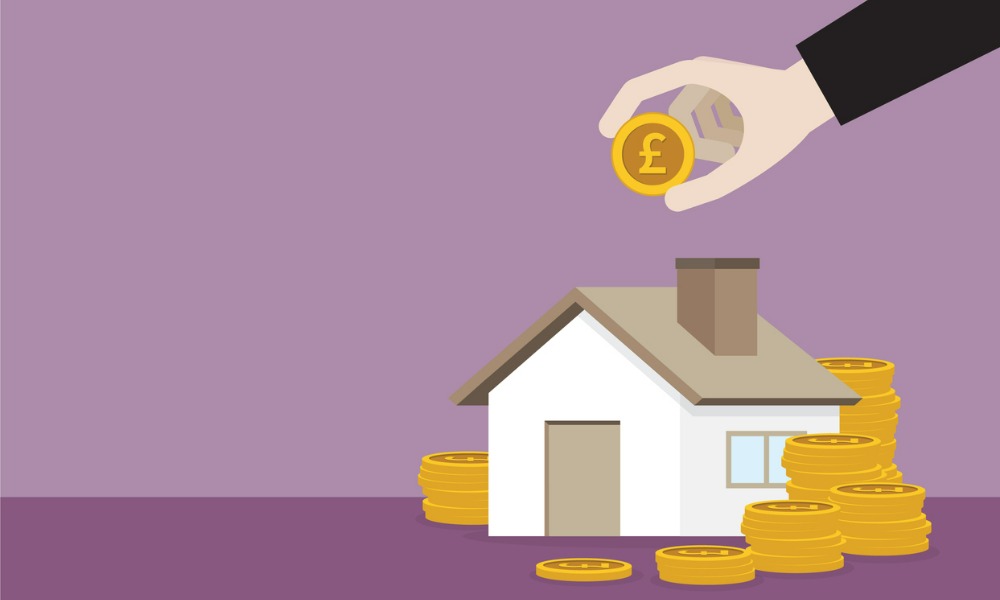House price growth continues, but it may not be for long

The average UK house price rose again in April, up by 1.1% or an equivalent of £3,078, hitting another new record high of £286,079, the latest Halifax House Price index has revealed.
Halifax said that this was the 10th consecutive month that property values have increased, the longest run of continuous gains since the end of 2016. House prices are also up £47,568 over the last two years.
Northern Ireland has overtaken the South West of England as the UK’s strongest performer in terms of annual price house inflation, now at 14.9%, its highest rate of annual growth since December 2007. The average house price is now £182,565 though this is still some way short of the country’s record high of £230,931, set prior to the financial crisis in the summer of 2007.
The rate of annual house price inflation in London continues to lag the rest of the UK, with prices now up by 6.2% year-on-year. However, average property values in the capital remain much higher than the rest of the country, with the latest average house price figure of £537,896 a new record for the capital city.
Russell Galley, managing director at Halifax, said that housing transactions and mortgage approvals remain above pre-pandemic levels and the continued growth in new buyer enquiries suggests activity will remain heightened in the short-term.
“The imbalance between supply and demand persists, with an insufficient number of new properties coming on to the market to meet the needs of prospective buyers and strong competition to secure properties driving up prices,” he added.
“Though pessimism will continue to grow as inflation spikes and a possible recession looms, for the time being at least, house price growth seems largely insulated from these downward pressures,” Nicky Stevenson, managing director at national estate agent group Fine & Country, commented.
Jeremy Leaf, north London estate agent and a former RICS residential chairman, said the pace of increase in interest rates and inflation is becoming an increasingly important theme, not just for the economy but for the property market.
“These figures are always an important barometer of market sentiment and show that the concerns of many buyers and sellers about economic uncertainty are still outweighed by their determination to find suitable property,” Leaf noted.
According to Halifax, there is evidence that this demand is centred on larger, family homes, rather than smaller properties such as flats. Over the past year, prices for detached and semi-detached properties have risen by over 12%, compared to just 7.1% for flats. The net cash increase for detached properties, at just under £50,000 over the past year, is nearly five times more than for flats.
“Family houses remain the most popular choice for buyers but the continuing shortage of them means that no price correction is anticipated for the time being at least, just a slowing of house price growth,” Leaf remarked.
At the current rate of growth, Halifax said that there is a possibility that a typical home hits the £300,000 mark by the end of this year. However, such a prospect remains unlikely given the forecast on economic conditions.
Galley said that while the strong house price growth shows little signs of abating, headwinds facing the wider economy cannot be ignored.
“The house price to income ratio is already at its highest ever level, and with interest rates on the rise and inflation further squeezing household budgets, it remains likely that the rate of house price growth will slow by the end of this year,” he pointed out.
Sundeep Patel, director of sales at Together, and Ross Boyd, founder of mortgage comparison platform, Dashly.com, agreed that the price growth fuelled by too many buyers chasing too few properties will soon slow down.
“As budgets continue to tighten and people’s financial priorities shift, the property market boom may start to taper off as households reorder their finances and ability to spend,” Patel said.
“April may well have been the property market’s last fandango. With inflation tipped to hit 10% and interest rates rising, this rate of price growth simply cannot continue,” Boyd added.



